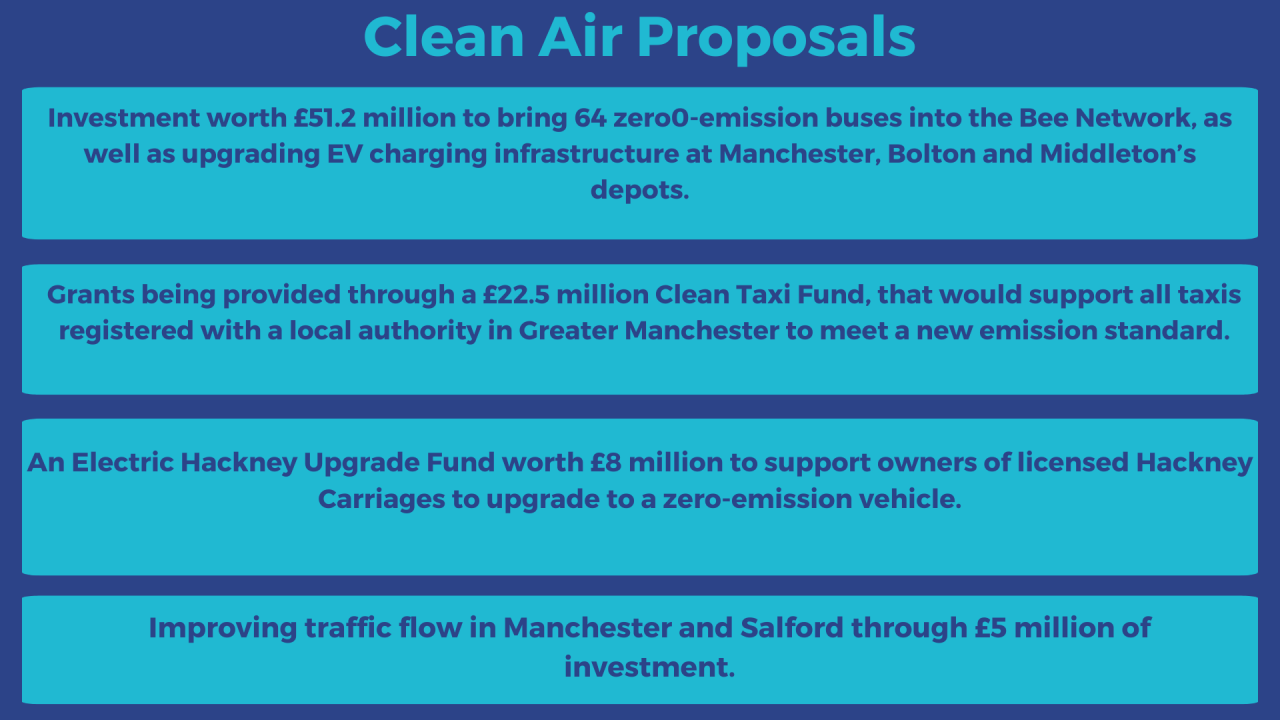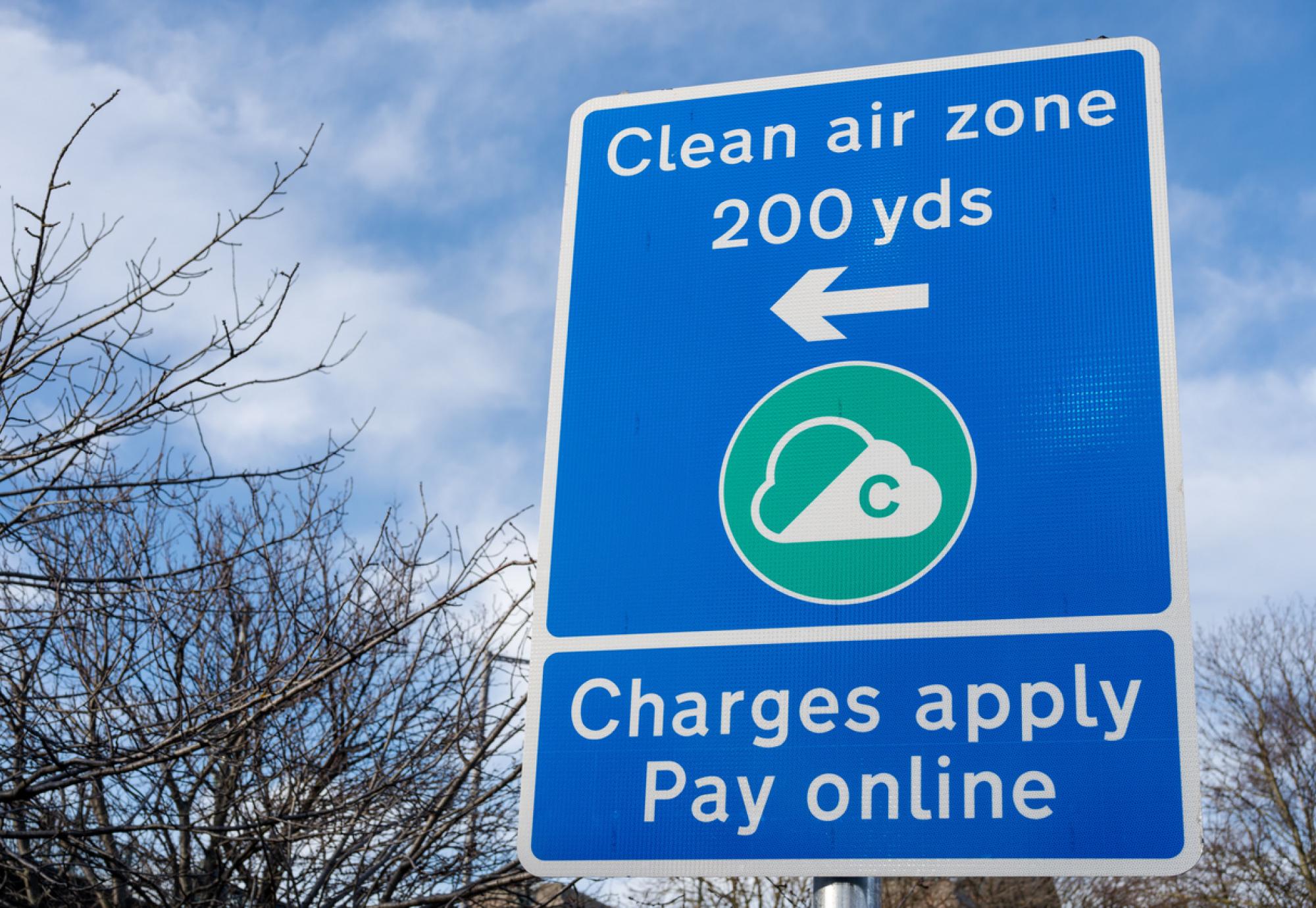Greater Manchester Combined Authority has stated that new modelling shows how air quality improvements can be achieved without the need for a charging Clean Air Zone.
The government has legally directed the 10 local authorities within Greater Manchester to bring levels of nitrogen dioxide within the legal limits by 2026 at the latest, however, evidence is being prepared that shows how this could be achieved by 2025 through a non-charging Clean Air Zone. The same modelling that showed this also identified how the 2026 deadline for the reduction in emissions would not be met if a charging Clean Air Zone was implemented.
Rather than charge vehicles to drive in the centre of Manchester and Salford, the combined authority has proposed that £51.2 million is committed to purchasing zero-emission buses for use on the Bee Network, as well as £30.3 million to support grants for more sustainable taxis.
Andy Burnham, Mayor of Greater Manchester, said:
“Cleaning up the air that people breathe is a priority for Greater Manchester and we have already started to do that through investment in the Bee Network, which saw the first buses brought back under local control in September.
“By accelerating investment in the Bee Network to create a London-style integrated public transport network, and upgrading GM-licensed taxis, we can improve air quality faster than if we introduced a Clean Air Zone, and without causing hardship to our residents or businesses.
“Since the first bus services came under local control, we have listened to feedback to make improvements and deliver change and are already seeing the benefits the Bee Network brings, with more people getting on board with lower fares under a locally controlled service, with new, state-of-the-art electric buses.
“I’d also ask government to urgently consider allowing Greater Manchester local authorities to remove charging Clean Air Zone signs, as modelling shows that only Greater Manchester’s investment-led plan can meet the legal test placed on the 10 councils to deliver compliance in the shortest possible time and by 2026 at the latest.”

A report will be published and given to the Greater Manchester Air Quality Administration Committee, which will be asked to approve the submission of this evidence to the government. The plan for investment to achieve the air quality improvements involves:
- Investment worth £51.2 million to bring 64 zero0-emission buses into the Bee Network, as well as upgrading EV charging infrastructure at Manchester, Bolton and Middleton’s depots.
- Grants being provided through a £22.5 million Clean Taxi Fund, that would support all taxis registered with a local authority in Greater Manchester to meet a new emission standard.
- An Electric Hackney Upgrade Fund worth £8 million to support owners of licensed Hackney Carriages to upgrade to a zero-emission vehicle.
- Improving traffic flow in Manchester and Salford through £5 million of investment.
Greater Manchester’s Clean Air lead, and Leader of Bury Council, Cllr Eamonn O’Brien also commented:
“We know that there are very serious consequences of dirty air in Greater Manchester and that the health impacts are not always felt equally.
“We want to do the right thing in the right way, using an investment-led, non-charging plan to clean the air in a supportive and transitional way, that does not create the risk of financial hardship. While we can now prove our case for an investment-led plan, modelling shows that we can’t achieve compliance through a charging Clean Air Zone by 2026. There is now a compelling case for what Greater Manchester has set out – a plan that is fairer, cheaper, more affordable and more democratic.
“Subject to the approval of the Greater Manchester Air Quality Administration Committee at its meeting on 20 December, this evidence will be submitted to government. It is then for government to determine which scenario Greater Manchester is to implement – an investment-led, non-charging plan, or a charging regional centre Clean Air Zone.”
Image credit: iStock



















